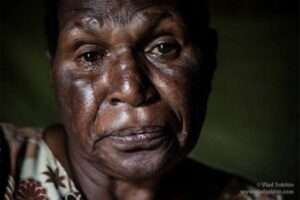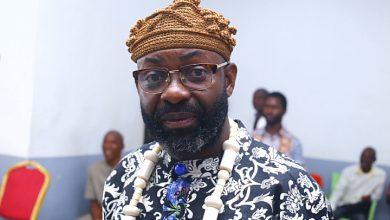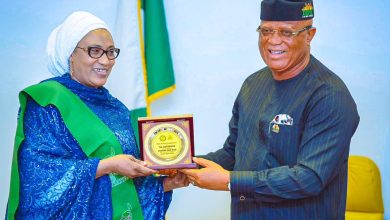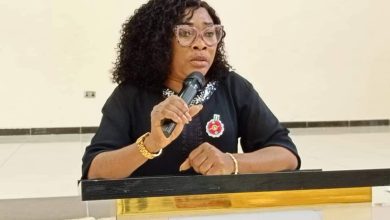The Untold Agony Of Widowhood

The United Nations observes 23rd of June each year as the International Widows’ Day. The date is set aside to create awareness of the ill treatments widows experience by obeying obnoxious African traditions and customs, especially in Nigeria.
The dilemma a woman faces once her beloved husband dies is believed to be one of the most traumatic experiences one can go through in most regions in Nigeria. In the midst of her loss, she is still expected to obey certain dehumanizing traditional customs before and after her husband is laid to rest.
Most widows in Nigeria, especially the ones who reside in rural areas, are made to have a taste of a venom by being subjected to various forms of violence that tend to have a psychological and emotional effects on their well-being.
According to United Nations Development Fund for Women (UNIFEM) 2010, violence against women is one of the most pervasive human rights violations which deny women the right of equality, dignity and fundamental freedom. The major cause of these restrictions can be linked to certain Nigerian traditions which prohibit women from carrying out some responsibilities at will and also forcing them to obey some inconvenient customs that can cause them to be battered and downtrodden.
Consequently, widows are made to experience demeaning practices associated with widowhood and it is quite disheartening to note that fellow women from the community mete out these obnoxious treatments on widows where they are coerced to obey the tradition of the land.

Eastern parts of Nigeria are known for enforcing unhealthy practices on widows. Nwanegbo (1996) hinted that in some parts of Igbo land, when a man dies, the wife will tie a wrapper over her chest without a blouse. She must not talk to anybody and will not have her bath until her husband is buried.
According to him, after the burial, the ‘Umuada’ (daughters of the man’s ancestors) will come to shave her hair, bath her in an open compound, only having the privacy of being surrounded by the ‘Umuada’.
Nwanegbo stated that the widow would be asked questions on how and when the deceased husband died, the circumstance that led to his death, what she did to save him from dying and her extent of contact with the late husband’s family before his death. Where the explanations are not satisfactory, the widow must drink the water used in bathing the corpse of her husband to prove her innocence.
A widow, Stella Ogheneovo, in May 2017 lamented how she was forced to drink the water used to wash her deceased husband’s corpse to prove her innocence in his untimely death. Stella was admitted to hospital with severe stomach pains after the incident.
Other patterns of widowhood practices also involve shaving or scrapping the widow’s hair, this is practised in most states and some parts in Akwa Ibom State.
A widow from Ukanafun, Akwa lbom State, was told to shave her hair alongside her pubic hair in order to put the strings in the late husband’s casket. According to her, this is a traditional rite a widow must go through to finally separate herself from the husband.
Another widow from Mkpat Enin, Akwa Ibom State, who spoke on condition of anonymity lamented how she had to scrap her hair and cut her nails in order to fulfil the traditional rite demanded from her by the community.
Another humiliating punishment encountered by widows in other tribes is being deprived of their husbands’ property. Roseline, a widow in Akwa Ibom, decried how she was chased out with her daughters, having only the clothes on her back. She had to crash in with a family friend before heading out to Lagos to live with her uncle. Her first daughter has now been taken by the family with threats that the second one would also be taken since she has refused to sign the levirate order.
A report published on Vanguard, July 19, 2014 narrated another pathetic case where an Edo widow, in Ikpeshi, a boarder town between Akoko- Edo and Etsako West Local Government Areas of Edo State, was forced to leave the late husband’s house for her parents’ house one year or six months after the death of her husband.
Apart from the dehumanizing widowhood practices, widows also face other challenges that affect their livelihood. For instance, a widow from Mkpat Enin in Akwa Ibom State said she really went through hell after her husband’s funeral because she was left alone to fend for her children.
“It was really tough after losing my husband, I had to beg and engage in hard labour in order to take care of my three young kids. I was left alone to survive and nobody really cared to see how my children and I were faring. They all minded their businesses,” she lamented.
Struggling with loneliness can also be a major problem widows have to deal with after losing their dear husbands. A widow named Modupe Oyebode said, “We were so close, I never had friends. After his death, I was very lonely. Many times, I would forget that he is dead and ask: So what do you think? Then would realize that he is no more.
“At moments like this” she said she would cry. To cope, she threw herself into activities, like attending seminars, her work as a teacher and farming, “as reported in Global Press Journals, in 2017.
To protect Nigerian widows from this unhealthy widowhood practices, the Federal Government in May 2015 signed into law the Violence Against Persons (Prohibition) Act to protect people against various forms of violence, including harmful widowhood practices. It was the first time federal law has expressly granted widows protection from abuse, but unfortunately the enforcement is weak.
According to Dr. Farkhonda Hassan, chair of the UN Economic Commission for Africa’s Committee on Women and Development, “We are all aware that despite achievements and progress made, African women face major challenges and obstacles.
“The majority of African women are still denied education and employment, and have limited opportunities in trade, industry and government,” she said.
To eradicate these demeaning practices of widowhood in various communities, Hassan said that there is need to lay out areas that need improvement, the areas which include reducing poverty among women, stopping violence, providing access to education, health care, reducing economic and political inequality.
There is need for all hands to be on deck by the federal government, NGOs and communities at large tackling the barbaric practice. Advocacies should be done to strengthen policies on the treatment of widows in different tribes in the country.




